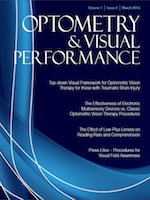Children who suffer from a second or third concussion take much longer to recover.....
....Normally it only takes a couple of weeks for the symptoms of concussion to go, which include: Amnesia, Depresion, Disturbed sleep, Hyperacusis - sensitivity to sounds, Irritability, Lack of concentration, focus, Moodiness, Photophobia ......
.... people who had suffered from a second concussion took over a month to recover.
......Kids who suffered from a second concussion within one year of suffering their first one experienced the symptoms for three times longer than those whose concussions were more than a year apart.
Other factors that resulted in a longer recovery time, included: Being over the age of 13, Having very severe symptoms at the ER visit, Experiencing no loss of consciousness.....
Comments: Read more by clicking on the title above. DM
